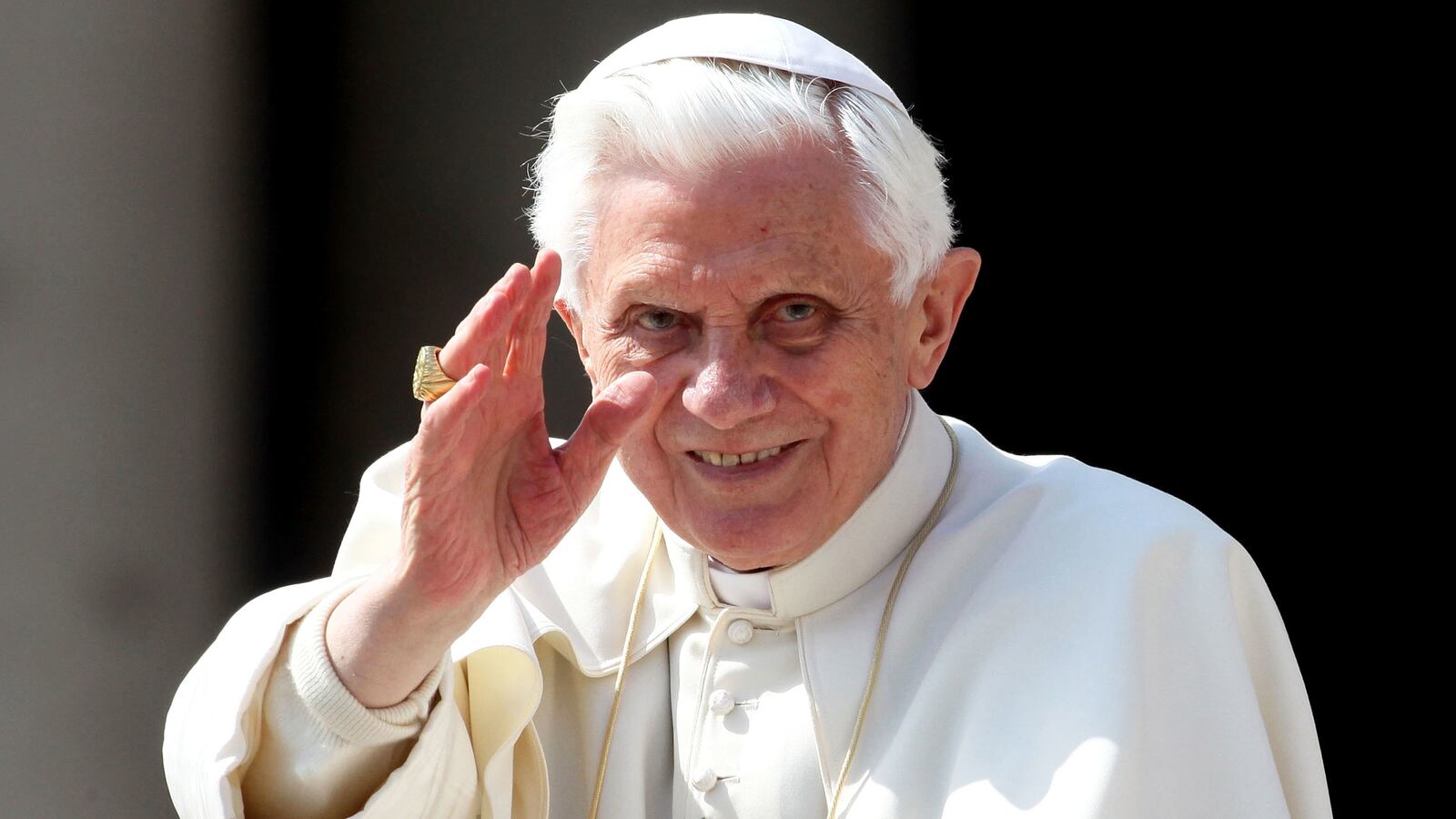ROME—Some might argue that the cards were stacked from the start against Cardinal Joseph Ratzinger, who was elected to become Pope Benedict XVI in April 2005. Benedict, who died Saturday at the age of 95, was chosen by a divided college of cardinals (that very nearly voted in the man who would become Pope Francis seven years later) to fill the shoes of popular Pope John Paul II, one of the most beloved popes in history. Instead he traded those shoes for Prada slippers and stumbled his way through a papacy fraught with controversy.
Benedict's troubled time at the helm of the Catholic church shouldn’t have come as a surprise, really. The theologian had led the Congregation for the Doctrine of Faith, formerly the church’s inquisition office, from 1981 until his election as pope. There he was the chief enforcer of the church’s strict dogma, often siding on the strict rule of church law over common sense. It was there he also played his part in one of the greatest scourges of the Catholic church—the systematic sex abuse of thousands of children by thousands of priests across the world. It was under his direction that the global church perfected the art of keeping accusations of clerical sex abuse secret, to be dealt with “in house.”
He dies a devout man whose path to heaven seems all but assured. But he also dies accused of protecting some of the church’s worst abusers, like Mexican priest Marcial Maciel Degollado, whose clear case of abuse complaints he sat on at the CDF until he was forced by an overwhelming amount of evidence to request the resignation of the priest, whose ability to fundraise for the church is still said to be missed.
He also protected Cardinal Bernard Law, who was never accused of abusing children, but whose sins of commission by knowingly moving around predator priests, were nearly as bad. Law did resign from his diocese in Boston, only to turn up in Rome to lead one of the city’s most important titular basilicas.
But it was his shocking and somewhat cowardly resignation in February 2011 that will forever seal Benedict’s legacy. Had he stayed at the helm until his natural end, he would have likely left a very different church, though one undoubtedly more united than it is today. Instead, his legacy as “the pope who resigned” has virtually cancelled out the shadows that dogged him when he ran the church. Long have people forgotten his blind eye turned on the clerical sex abuse cases, or the many gaffes that highlighted his five years in office. His criticisms of the Prophet Muhammad’s teachings as “evil and inhuman” led to widespread protests and the firebombing of Catholic churches in the West Bank.
He also called homosexuality “intrinsically disordered” and warned that same sex marriages would cause the “self-destruction of the human race.”
During the last months of his papacy, in what many believe may have led him to resign, he faced two major scandals. Vatileaks, centered around his butler Paolo Gabriele’s theft of secret documents that were given to a journalist, is said to have weighed heavily on Benedict, who felt betrayed. That case went to trial and the butler and an assistant were eventually convicted, only to be pardoned by Benedict a few months later.
Benedict was also scandalized by the growing and powerful gay lobby in the Roman curia. He is said to have been handed a red-covered dossier outlining the various details and key players working against him before ultimately deciding to hang up his mitre. What is in that dossier remains a secret that he takes to his grave.







